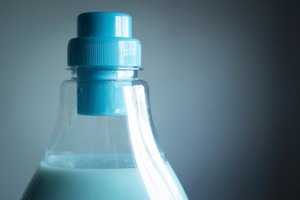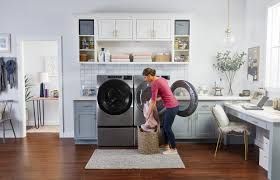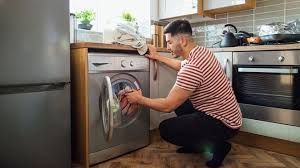Don’t Waste Money! Use Your Laundry Products Right
6 tips for getting the most out of your laundry products.
 The average American family does 8 to 10 loads of laundry per week. With so much washing and drying going on, even a few cents of savings per load can really start to add up. Chances are you have probably already made some energy-saving adjustments to your laundry routine such as running fewer wash loads on hot and adding tennis balls to the dryer to help clothes circulate and reduce drying times.
The average American family does 8 to 10 loads of laundry per week. With so much washing and drying going on, even a few cents of savings per load can really start to add up. Chances are you have probably already made some energy-saving adjustments to your laundry routine such as running fewer wash loads on hot and adding tennis balls to the dryer to help clothes circulate and reduce drying times.
But have you considered the impact that your laundry products have on the efficiency of your wash and the cost of your laundry? Here are some useful tips that should help you choose the right products for a cost-effective clean.
Use Less Detergent
Except in the case of heavily soiled clothes or really big loads, you really don’t need to use as much detergent as the bottle says. Instead, fill the cap only to the lowest line. Experts estimate this will save the average family $80 per year.
Never Use Regular Detergent in a High-Efficiency Machine
Your traditional top-loading washing machine cleans clothes differently than a high-efficiency machine. Top-loaders soak and agitate clothes to encourage detergents to bond with dirt molecules and draw them out of the fabric, while high-efficiency machines force soapy water through the fabric, allowing the detergent to pull dirt away in this fashion. These two different cleaning actions require two different detergents. You may think you are saving money by using regular detergent in a high-efficiency machine, but in reality your clothes aren’t getting cleaned right.
Always Use a Cold Rinse, But Beware a Cold Wash
The only time you really need a hot wash is for sanitizing items that have blood or bodily fluids on them. Otherwise, a cold wash is much more energy-efficient. However, it is important to understand that it is possible for water to be too cold for detergent to work effectively. If the water is below 65 degrees, the chemical reactions needed to attract soils away from the clothes to the detergent particles will not occur. So on really cold days, use warm water instead of cold for washing. It is always safe to use cold water for rinsing.
Avoid Fabric Softener
Many families spend $65 on fabric softener per year. Often, this product seems necessary precisely because detergent residue has made clothes stiff. Using less detergent should eliminate the need for fabric softener. If static cling is the concern, try line drying synthetic fabrics instead of using fabric softener.
Ditch the Dryer Sheets
Dryer sheets are another product that isn’t necessary for a nice, clean-smelling laundry. It can harm your dryer by depositing residue on its heat sensors, in which case you’ll end up spending more money on dryer repairs.
Avoid Optical Brighteners
Products that promise to make clothes “appear” brighter without bleach often contain compounds called optical brighteners. These provide the illusion of bright, clean clothes by adding a film of chemical residue to the cloth. To make matters worse, many contain benzene, a known carcinogen.
You might also like
Educational Center
Book a Service Today
We will get back to you as soon as possible
Please try again later
Quick & Reliable
We are available 24/7
About Us
Authorized Appliance is an appliance repair contractor referral service. We connect you with appliance contractor in your area. All contractors are operated independently of Authorized Appliance. It is the responsibility of each user to verify that the contractor connected with meets all licensing and insurance requirements in that jurisdiction.
All Rights Reserved - Authorized Appliance




